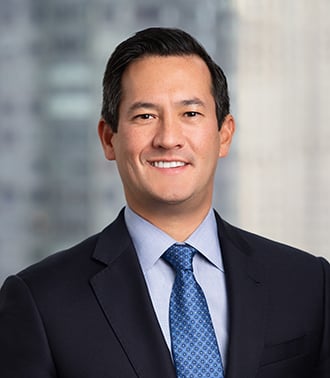SEC Director Grewal Discusses SEC Priorities at SIFMA’s 2023 C&L Annual Seminar
This week, Enforcement Edge is attending SIFMA’s Compliance & Legal Annual Seminar 2023 in San Diego. With over 1,700 attendees, the event is one of the primary conferences for attorneys and compliance professionals working in the areas of securities enforcement and litigation and financial regulation.
The conference opened with an appearance by Gurbir Grewal, Director of the Division of Enforcement for the Securities and Exchange Commission (SEC), in conversation with moderator Joseph Seidel of SIFMA.
Grewal began by drawing parallels from his time as the attorney general of New Jersey. Grewal said that among the lessons he learned as attorney general was the need to enhance public trust in institutions and work with other regulators. He spoke about the importance of leveraging different authorities and resources because the SEC “can’t be everywhere.” Grewal also said that it was important to empower public servants, which he has sought to do at the SEC by giving staff attorneys more authority, resulting in a shorter Wells process.
The rest of the discussion was spent on SEC’s recent enforcement trends and the SEC’s priorities for this year, the latter of which Grewal described as creating robust enforcement and increasing the SEC’s proactiveness; pursuing aggressive remedies; enhancing a culture of compliance; and investing in people:
- Creating robust enforcement and increasing the SEC’s proactiveness. Grewal noted that significant recent enforcement action was coming out of the SEC’s sweeps, such as sweeps relating to (1) books-and-records regulations, including on off-channel communications; (2) abusive trading practices, including on 10b5-1 trading and insider trading; and (3) emerging risks, including those related to cryptocurrencies and private funds.
- Pursuing aggressive remedies. Grewal also discussed 2022’s record amount of penalties, which has “reset” the industry’s “expectations for remedies.” Grewal said that the SEC was aiming to use its entire toolkit of remedies, including injunctive relief, bars, and clawbacks. He addressed the publicity around the SEC’s enforcement actions relating to off-channel communications and the more recent shift in focus from broker-dealers to investment advisers. Grewal said that the SEC’s underlying message in these actions is that books-and-records obligations are important to market integrity and the ability of the SEC to do its work. When asked whether the over $1.2 billion in fines for off-channel communications were “fair,” Grewal said that, while some found the number large, others thought that the number was small given the total revenue of the firms subject to the fines. Grewal’s goal was to impose penalties that will change behavior across the industry.
- Enhancing a culture of compliance. Grewal acknowledged the difficulties faced by compliance officers in terms of resources and other challenges. In an effort to calm fears that the SEC was unfairly targeting compliance officers, Grewal urged the public to review the SEC’s recent orders, in which the SEC didn’t second guess good faith judgments but instead sanctioned compliance officers who failed in their responsibilities by repeatedly ignoring red flags. He also described how the SEC has intentionally used its orders to convey what good compliance looks like and characterized many recent SEC orders as “roadmaps” for legal and compliance professionals. He noted that firms must demonstrate actual compliance with books-and-records obligations, not merely have policies “on paper.” Grewal also emphasized that firms who self-report books-and-records violations “will be in a better place” than firms who do not.
- Digital assets. Grewal was asked about how established financial institutions, such as broker-dealers, should engage with digital assets. Grewal said that he saw significant non-compliance in the digital assets industry. Grewal said that it was a “good thing” that traditional firms were not entering the digital assets business until there was more compliance. Grewal referred to the SEC’s over 100 enforcement actions in this space and said that the enforcement actions must continue because investors are being harmed. Grewal also pushed back against the notion that the SEC was regulating by enforcement and pointed to the SEC’s litigation successes relating to digital assets as vindication of the agency’s approach.
- Reducing delays in SEC investigations. Grewal lamented the delay between news stories about possible wrongdoing and accountability through enforcement actions. Grewal also noted that he was troubled by gamesmanship in companies’ document productions and the behavior of counsel when participating in investigative testimony. Grewal described how the SEC was aiming to be more precise in requests, increase its openness and transparency about its investigations, and encourage the use of reverse and attorney proffers.
- Using artificial intelligence and big data. Grewal described how the SEC is using market analytics to investigate suspicious trading behavior and earnings-per-share (EPS) manipulation. Grewal predicted that, as issuers begin to miss earnings projections, EPS manipulation, including “gimmicky” “cookie jar accounting,” may become more common. These efforts preceded Grewal’s tenure as Division Director and continue apace under his leadership.
Grewal concluded with a few final thoughts. He said that one of the themes from the books-and-records enforcement actions and other recent SEC priorities is that the SEC is aiming to empower legal and compliance professionals. Grewal suggested that legal and compliance professionals engage with their businesses and understand the areas of risk, noting that the SEC telegraphs its examination and enforcement priorities and “is not guilty of the element of surprise.”
For questions about these issues and more, please reach out to the authors or their colleagues in Arnold & Porter’s White Collar Defense & Investigations and Securities Enforcement & Litigation groups.
© Arnold & Porter Kaye Scholer LLP 2023 All Rights Reserved. This blog post is intended to be a general summary of the law and does not constitute legal advice. You should consult with counsel to determine applicable legal requirements in a specific fact situation.


